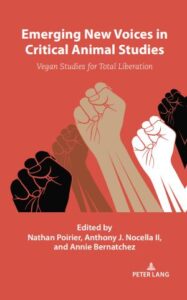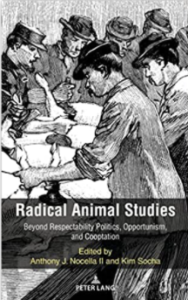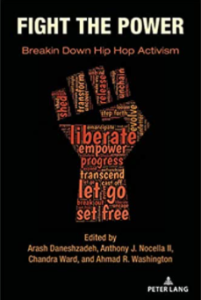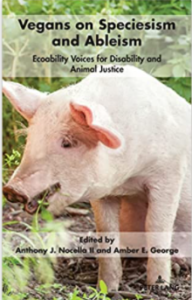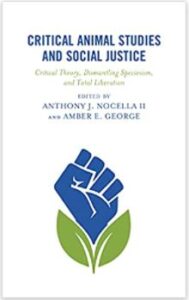Scholar-Activist Spotlight with Carlos García – March 2020
Annie Bernatchez – Where are you from? When and
how did you become an Animal Liberation activists?
Carlos García – I live in Bilbao, located in the Basque Country, North
of Spain. I mainly became an Animal Liberation activist through hardcore and
punk music by which I first heard about the issues of vegetarianism, veganism,
and Animal Liberation. It’s the very anarchist movement that has introduced
Animal Liberation and veganism in Spain.
AB – What does the intersectionality of social struggles and total liberation mean to you? How is this important for anti-speciesism?
CG – It means everything, I guess. We cannot fight for one social cause and remaining apart from other types of systemic oppression. I mean, there is no social struggle more important than another. Oppressive systems can be fought all together. Anti-speciesism needs to be associated with a political agenda from various social justice fights. My idea is that all forms of discrimination have common oppressors as a root of oppression.
AB – What is the most important animal struggle that Spanish, and European, currently face?
CG – Currently, they are some vegan and anarchist groups whose coordinated actions make the movement more robust and more prominent. However, the vegan movement is undermined by some organizations favouring a hierarchical structure by which political activism is ignored, and discrimination is accepted, for example, racism and sexism. Such organizations address veganism as the only struggle; indeed, only nonhuman animals matter to them while denying the intersectionality of oppression. But, as we know, there are many struggles to consider at the same time.
AB – What anti-speciest projects are you involved with? What outcomes you see, positively or negatively?
CG – Among other projects, I am involved in projects focusing on Animal Liberation prisoners and anti-capitalism, to name a few. Sometimes, people from an affinity group support me through actions and gatherings. Also, I’m now planning to produce a documentary against animal testing without any graphics. I want to work with ethical researchers; some of them are vegans, using cruelty-free methods.
As a member of ICAS, I find it challenging to contribute significantly as I’m located far from most of the members, and I’m involved in many activism activities additional to the Animal Liberation movement.
I saw many positive things during my 23 years as a vegan. For example, the growing number of vegans, although most of them still deny other political issues and the intersectionality of oppression. Such vegan’s perspective refers to “nonhuman animals first,” which reminds me of Trump’s speech of “Americans first.” It is a challenging endeavour to educate those vegans about Total Liberation and why it’s the only way to fight human, nonhuman animals, and earth oppression. Furthermore, what we see as the emerging Green capitalism is perverting the meaning of veganism and evacuating its political context.
AB – As a long-term anarchist and anti-speciest, what social changes for the animals have you witnessed so far? What are the mistakes done by animal activists, and conversely, what are the good shots?
CG – It’s a difficult question. There are some small victories, but not enough compared to the amount of slaughtered nonhuman animal victims. It is a fact that some businesses have closed their door following the actions of Animal Liberation groups, but for big industries, it has minimal impact. Even so, for us, every saved life count and is a victory in itself, as you know.
Activists make a lot of mistakes, but it’s in human nature. I think many organizations are wrongfully running their actions on behalf of nonhuman animals. Some organizations operate as businesses, and they receive funds from the government, which also let hunters kill, support slaughterhouse, and animal farming. Those organizations place more importance on their image rather than supporting Animal Liberation prisoners, street activism, and the total liberation perspective.
In any case, we are trying to give the best of us and show that we don’t need corrupted money to fight against animal exploitation. On a positive note, there is an increasing number of adhering to the anarchist perspective to act upon animal liberation.
AB – What would you advise to a beginner Animal Liberation activists? Why do you think this is important?
CG – I’m not sure if I can give advice to someone who begins other than being proactive by which I mean find affinity people and start an activist group that rejects hierarchy and oppose all form of oppression. Also, try to collaborate with other social justice activists even if they are not vegan and educate them on the common root of oppression. For example, speciesism is one pillar that keeps capitalism alive. That is important to understand if we want our movement to grow, be accepted by other social justice movements, and let veganism be a part of them.






